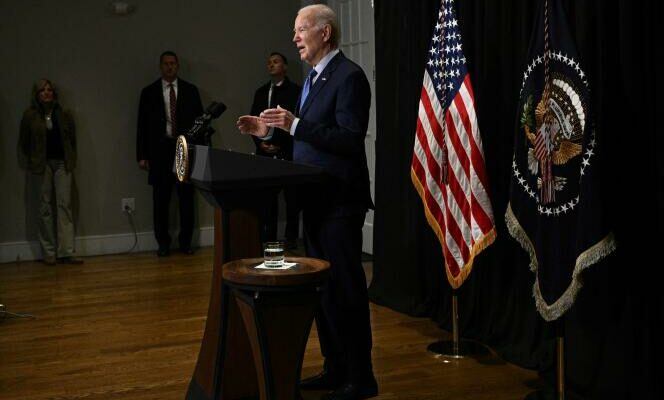Embrace diplomacy: this is how Joe Biden’s strategy with Israel has been described in the United States since the Hamas attack on October 7. Compassion and support would be the prerequisites for providing the Jewish state with solid advice in the deployment of its military response in Gaza. But in reality, over the weeks, as the toll of Palestinian deaths and destruction took on unprecedented proportions, the White House attempted to rebalance its commitment. She took up the humanitarian issue, invoked the laws of war, and held up the nebulous prospect of a rehabilitation of the two-state solution. All this without ever calling for a ceasefire or renouncing the primary objective set by Israel: the destruction of Hamas.
What does Joe Biden want? This question arises acutely, after a week of truce and successive releases of hostages. The Israeli army still has work to do in the north of the enclave, due to the hundreds of entrances to the underground network to be sealed off. Then the time will come to move the operation south. Whether it wishes it or fears it, the White House exercises a form of sponsorship over this military operation. She thus shares the dilemma that overwhelms Israel. How to save the dozens of other hostages still detained, civilians and soldiers, while returning the south of the Gaza Strip? How can you claim to cleanse a territory of a terrorist and political organization while leaving only ruins, desolation and deaths behind?
Washington is trying to distance itself from war crimes allegations. His request transmitted to Tel Aviv: fewer civilian deaths, more targeted actions. The differences of appreciation between Americans and Israelis are becoming more substantial. Especially since Benjamin Netanyahu continues to link his fate to a racist extreme right, obsessed with revenge and fait accompli, dehumanizing the entire Palestinian population. According to Israeli public television, the prime minister explained to deputies from his party, Likud, that he was “the only one who can prevent the creation of a Palestinian state” after the war. Netanyahu therefore places himself, for his coalition, across this distant path drawn by Joe Biden. Likewise, it does nothing to prevent settler violence in the West Bank, even though it has been firmly condemned by the American president.
For now, the successive extensions of the truce have made it possible to offer a first respite to civilians in Gaza and a few days of reflection for decision-makers, notably in the Israeli war cabinet, the strategic pole. The American Secretary of State, Antony Blinken, is expected in the region on Thursday for the third time since the start of the war, in order to clarify American positions. As is often the case, it is easier to list what the administration does not want than the opposite: a regional extension of the conflict, the possibility for Hamas to reconstitute its nuisance capabilities, a reoccupation of Gaza by Israel.
You have 70% of this article left to read. The rest is reserved for subscribers.
